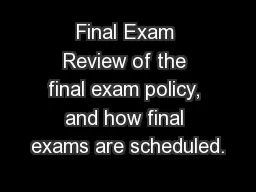PDF-1This is a penultimate draft. For a final draft see the Canadian Journ
Author : briana-ranney | Published Date : 2015-09-15
Openmindedness enjoys widespread recognition as an intellectual virtueIt makes an surface of a debate having followed for a few stepsthe flow of a dialectical exchange
Presentation Embed Code
Download Presentation
Download Presentation The PPT/PDF document "1This is a penultimate draft. For a fina..." is the property of its rightful owner. Permission is granted to download and print the materials on this website for personal, non-commercial use only, and to display it on your personal computer provided you do not modify the materials and that you retain all copyright notices contained in the materials. By downloading content from our website, you accept the terms of this agreement.
1This is a penultimate draft. For a final draft see the Canadian Journ: Transcript
Download Rules Of Document
"1This is a penultimate draft. For a final draft see the Canadian Journ"The content belongs to its owner. You may download and print it for personal use, without modification, and keep all copyright notices. By downloading, you agree to these terms.
Related Documents














